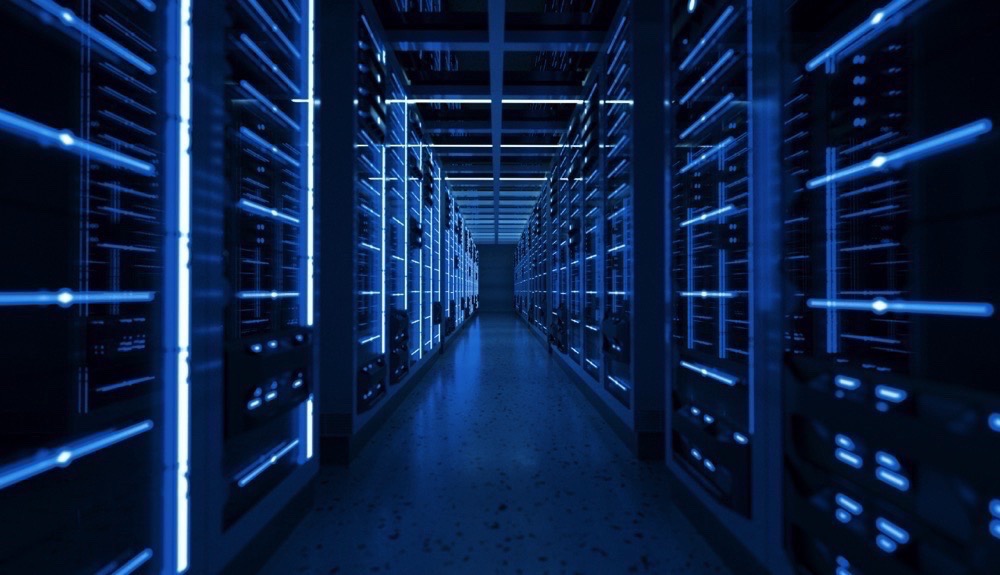By Raed Qutub, Senior Key Account Manager, MEA, Johnson Controls
Dubai, UAE, 3 July 2023: In the rapidly evolving landscape of data centers in the MEA region, sustainability has emerged as a critical focus. With growing energy demands and increasing environmental concerns, the adoption of circular economy principles has become essential for driving sustainable transformation.
Non arguably data centers can contribute to the circular economy in several ways. Here are a few key ways in which they can make a positive impact:
Energy Efficiency: Data centers can focus on optimizing their energy consumption by adopting energy-efficient technologies. Johnson Controls offers advanced energy efficiency solutions tailored specifically for data centers. Their intelligent building management systems monitor and optimize energy consumption, enabling data centers to reduce their carbon footprint and operational costs. By implementing efficient cooling technologies, such as precision air conditioning and adiabatic-free cooling, data centers can achieve significant energy savings. Johnson Controls’ energy optimization algorithms further enhance operational efficiency and contribute to a greener data center industry.

Data Center Design: Implementing modular and scalable designs for data centers can optimize resource usage. This approach allows for the expansion or contraction of infrastructure based on demand, reducing the need for excessive resources. Circular design and materials are key areas of focus for Johnson Controls. We actively incorporate circular design principles by utilizing recycled and recyclable materials in products. We seek sustainable alternatives to traditional materials, reducing the environmental impact of their offerings. By using recycled content and designing products for easy disassembly and recycling, Johnson Controls promotes the circularity of materials and reduces reliance on virgin resources.
Water Conservation: Water usage in data centers, particularly for cooling purposes, can be significant. Adopting water-efficient cooling technologies and practices, such as using closed-loop systems or advanced cooling techniques like direct liquid cooling, can minimize water consumption. Johnson Controls is at the forefront of developing innovative circular cooling systems for MEA data centers. These systems incorporate advanced technologies, including adiabatic free cooling and variable speed drives (VSDs), to optimize energy efficiency and reduce environmental impact. The integration of VSDs allows for fine-grained control of fan speeds based on the cooling load, optimizing airflow and reducing energy consumption compared to traditional fixed-speed fan systems. This ensures that cooling resources are utilized effectively and minimizes energy wastage.
Moreover, Johnson Controls’ circular cooling systems leverage intelligent controls and monitoring systems. These systems utilize advanced algorithms and sensors to continuously assess the cooling demands of data centers. By analyzing real-time data on temperature, humidity, and airflow, the control systems can make precise adjustments to fan speeds and cooling resources, optimizing the overall efficiency of the cooling infrastructure.
By incorporating variable speed drives into their circular cooling systems, Johnson Controls enables MEA data centers to achieve higher levels of energy efficiency and sustainability. The combination of adiabatic free cooling and VSDs ensures that cooling resources are utilized intelligently, reducing energy consumption and carbon emissions.
Collaboration and Knowledge Sharing: Data centers can collaborate with industry partners, governments, and research institutions to share best practices, develop standards, and promote innovation in sustainable data center operations. Collaboration and partnerships are integral to Johnson Controls’ approach. We actively engage with customers, suppliers, and industry stakeholders to develop innovative solutions and drive sustainability initiatives. By fostering collaboration and knowledge sharing, Johnson Controls contributes to the collective effort of achieving a circular economy not only in the data center industry but also in other sectors. Through collaborations, we aim to co-create solutions that enhance resource efficiency, reduce environmental impact, and drive sustainable transformation.
Overall, Johnson Controls is playing an important role in the development of green data centers and is helping to drive the adoption of sustainable computing practices in the industry. By working closely with customers to design and implement energy-efficient solutions, the company is helping to reduce energy consumption and carbon emissions, while also improving the performance and reliability of data center systems.
To sum up, with its hyperscale leadership, global sustainability services, world-class engineering and advanced research and development, Johnson Controls is well set to support one of the fastest growing segments of the technology industry nowadays.
About Johnson Controls:
At Johnson Controls (NYSE:JCI), we transform the environments where people live, work, learn and play. As the global leader in smart, healthy and sustainable buildings, our mission is to reimagine the performance of buildings to serve people, places and the planet.
Building on a proud history of nearly 140 years of innovation, we deliver the blueprint of the future for industries such as healthcare, schools, data centers, airports, stadiums, manufacturing and beyond through OpenBlue, our comprehensive digital offering.
Today, with a global team of 100,000 experts in more than 150 countries, Johnson Controls offers the world`s largest portfolio of building technology and software as well as service solutions from some of the most trusted names in the industry.































